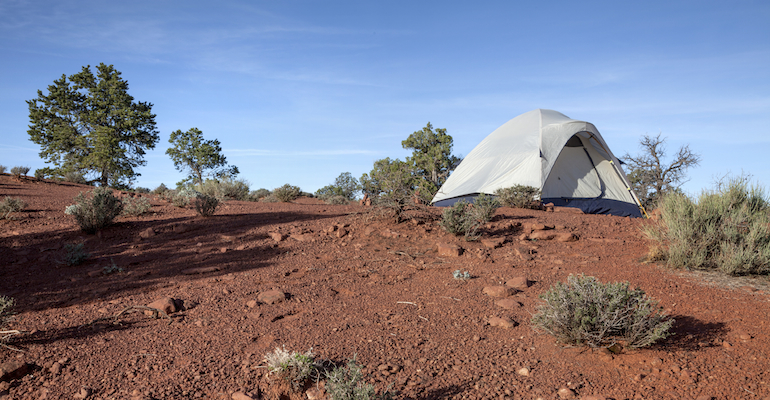My daughter, Anya, keeps rocks in her pockets. Smooth, polished, black obsidian, delicate Wissahickon schist. She has a fossil of a ginkgo leaf, perfectly preserved, which she plucked from a clutter of bones and old potsherds outside the window of my high desert lab. She has nearly a dozen calcite crystals that I smashed for her with a geology hammer. Some mothers impart wisdom. I shatter rocks with a mallet.
When Anya was barely three years old, I was hired to teach ecology at a summer camp in New Mexico. There was no plumbing or electricity, and there were no other children her age. My husband and I conferred. Do I bring her? It might be an amazing experience, or it could be a disaster. I decided to take her along, hopeful that things would work out.
I hadn’t imagined how frightened Anya would be, surrounded by strangers in a new place. I was the only face she knew, and I couldn’t rise from the table for a refill of coffee without prompting tears of alarm. If I walked ahead of her on the trail, she would wail, “Mama, come back! You’re too far! Too far!” I hadn’t figured on mice in our cabin, or rattlesnake babies under the steps. I hadn’t figured on fear.
On the day we adopted Anya, the director told us that she was the prettiest baby at the welfare institute. But, she added, “a little small.” When they carried Anya out, I was shocked. At 13 months, she weighed 13 pounds, and wore 0-3-month-sized clothing. She looked traumatized. On our return to the States, the doctors came to one conclusion. “Failure to thrive.” It wasn’t only that Anya didn’t eat. Her way of coping was to retreat. She wasn’t one to fight for her needs. Our greatest fear was that she would just give up.
Yet, slowly, in this semi-wild environment, my daughter began to grow stronger. It was a summer of dangerous lightning storms, and she studied them with amazed delight, as we huddled together in our cabin. She watched bats come alive at night, swooping down in search of mosquitoes. She hiked through mud, suffered spider bites, and rode high on the shoulders of the teenage campers.
One day, we were invited to a Navajo healing ceremony, and she ran around the yard playing stick games. I didn’t go into the ceremonial hogan. Instead, I watched a different kind of healing ceremony, as she laughed at a clucking cluster of chickens. Rattlesnake babies? No problem.
That summer, we became friends with Joe, a shy 10-year-old boy from the Hopi pueblo. He latched onto Anya, sitting by her at mealtimes, encouraging her to eat more, like him. Joe, I learned, had been abandoned in Phoenix when he was a baby. His grandmother had searched a long time before finding and bringing him home. There was Meg, our college intern, who looked after Anya for a few hours each day, and whom Anya liked to call (aggravatingly) “my other mama.” It worried Meg at first, who thought that Anya was talking about her Chinese birth mother. No, I explained. She means you.
Meg and Joe were among the diverse community of people at the camp who came to love Anya, nurturing her with patience and kindness.
Anya had names for almost everyone that summer. And they, in turn, had pet names for her. The campers called her Spoonbill, after her favorite bird. The staff called her Powderfinger, after the Neil Young song, and because her tiny fingers were always coated in soft desert dust. I nicknamed her Pocket Rocks, after the pebbles that filled her pockets.
One day, my daughter pulled several rocks from her pockets and set them down beside me. Rose quartz, hematite, a sliver of mica. “I’m bored,” she said, as I sat working. “I’m going to visit my other mama.”
I watched as Pocket Rocks left the lab and strode down the dirt path toward the mess hall, her jeans sagging low. Now and then, she paused, to dip her hands into dirt, to pick up another treasure. She appeared smaller the further she got, and yet it seemed that her shadow grew taller, until it stretched halfway across the camp. I looked at the clutter of rocks on the table. They were part of the detritus of the Natural History Lab, and I knew we would have to leave them behind when the summer was over. I smiled and slipped one into my pocket.



